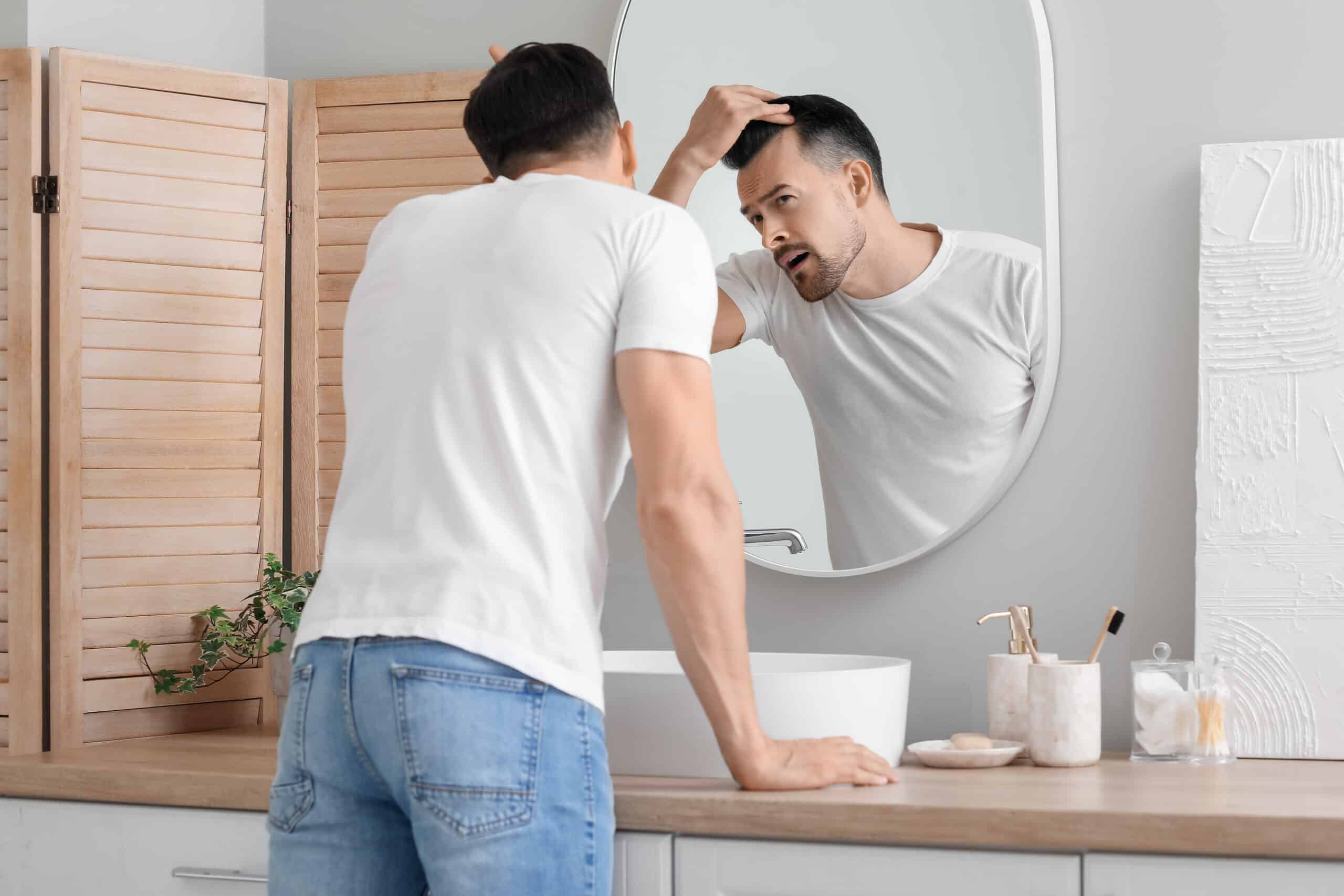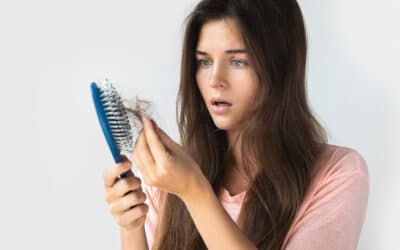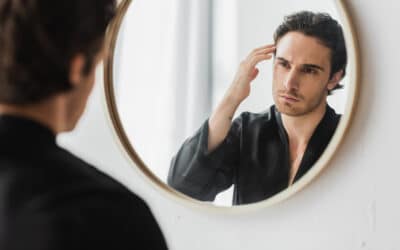Hair loss is a common concern that affects people worldwide, and many factors can contribute to its occurrence. Among the numerous lifestyle choices that impact hair health, the use of nicotine, primarily through smoking or vaping, has been a topic of debate.
In this blog, we will delve into the relationship between nicotine consumption and hair loss to help you better understand the potential effects and implications.
Understanding Nicotine and Its Effects on the Body
Nicotine is a highly addictive substance found in tobacco products and e-cigarettes. When consumed, it enters the bloodstream and affects various systems in the body, including the nervous and cardiovascular systems. Nicotine’s stimulating effects are why many individuals find it difficult to quit smoking or using nicotine-containing products.
Along with nicotine, tobacco products such as cigarettes, vapes, and nicotine gum, often contain other harmful chemicals that can further contribute to impaired hair growth– not to mention lung cancer.
The Link Between Nicotine and Hair Loss
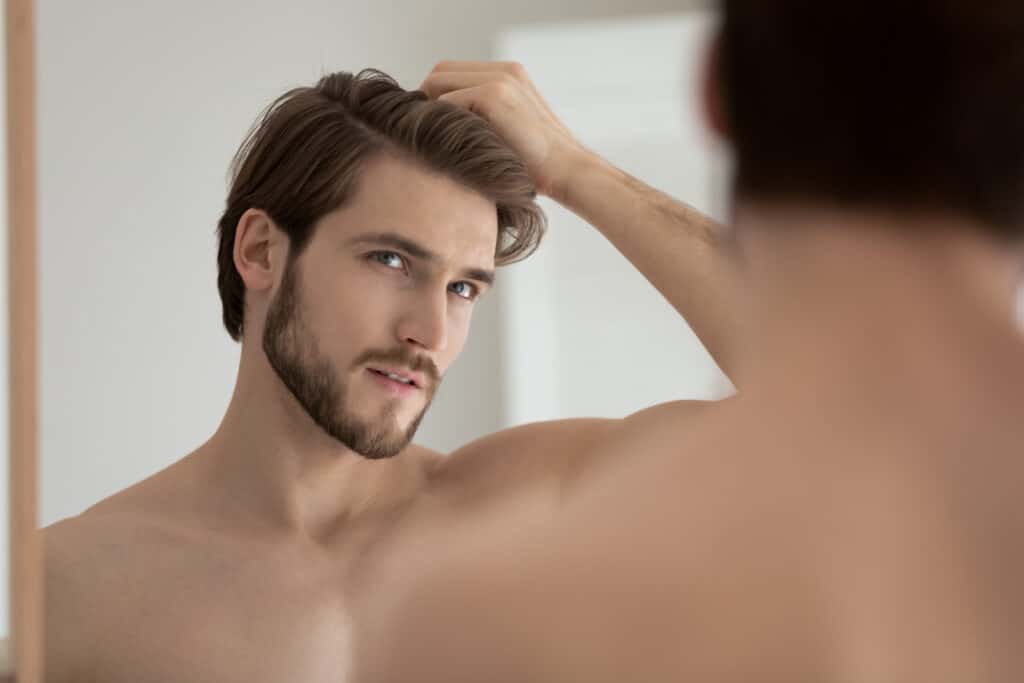
While hair loss is a complex issue influenced by multiple factors, the link between nicotine consumption and its potential effects on hair health has piqued the interest of researchers and individuals alike. Understanding how nicotine interacts with the body and the implications it may have on hair can shed light on this debated topic.
Reduced Blood Flow to Hair Follicles
Healthy blood flow to the scalp maintains your hair density and growth. Nicotine’s impact on blood circulation is a crucial aspect to consider in the context of hair loss, as it may cause damage to hair follicles. As a vasoconstrictor, nicotine causes blood vessels to narrow, leading to reduced blood flow to various parts of the body, including the scalp.
This diminished blood flow means that hair follicles receive fewer nutrients and oxygen, impeding their ability to function optimally. In turn, this can result in weaker hair shafts, increased hair shedding, and ultimately contribute to hair thinning or hair loss in the long run. If you’ve got a smoking habit, you can expect a higher chance of hair damage.
Natural injections can help mitigate these negative effects, boosting blood flow and providing needed nourishment to the scalp.
Oxidative Stress
Another significant effect of cigarette smoking and a nicotine habit on hair health is its role in generating oxidative stress. Free radicals are unstable molecules that can damage cells in the body, including those in hair follicles. This oxidative stress from cigarette smoke and other products can weaken the hair follicles, making them more susceptible to damage and inhibiting their ability to produce healthy hair. Over time, this oxidative damage may lead to nicotine hair loss and a decline in hair quality.
Hormonal Imbalance
Nicotine use has been linked to hormonal imbalances in cigarette smokers, particularly affecting androgen hormones. Elevated androgens, such as dihydrotestosterone (DHT), can contribute to hair miniaturization and male and female pattern baldness in individuals genetically predisposed to these conditions. These harmful effects of vaping and smoking not only bring negative effects to the head of hair you wish to preserve but your overall health as well.
Increased Cortisol Levels
Stress is a well-known factor contributing to hair loss, and nicotine use can play a role in exacerbating stress levels. The highly addictive nature of tobacco smoke and nicotine can lead to dependence, making quitting a challenging task for many individuals. As a result, individuals trying to quit smoking or vaping may experience increased stress and anxiety, which can further contribute to hair shedding and hair loss.
Impaired Nutrient Absorption
Healthy hair growth requires a balance of vital nutrients, such as vitamins and minerals, which are vital for hair follicle health. Unfortunately, the effects of smoking have been shown to hinder the absorption of certain nutrients like vitamins A, C, and E, as well as minerals like zinc and iron– limiting the benefits of having a healthy diet.
Deficiencies in these nutrients can lead to hair thinning and increased hair breakage, making it crucial for individuals to seek alternative sources of these essential elements, such as hair supplement systems, to support their hair health.
Does Quitting Smoking Improve Hair Loss?
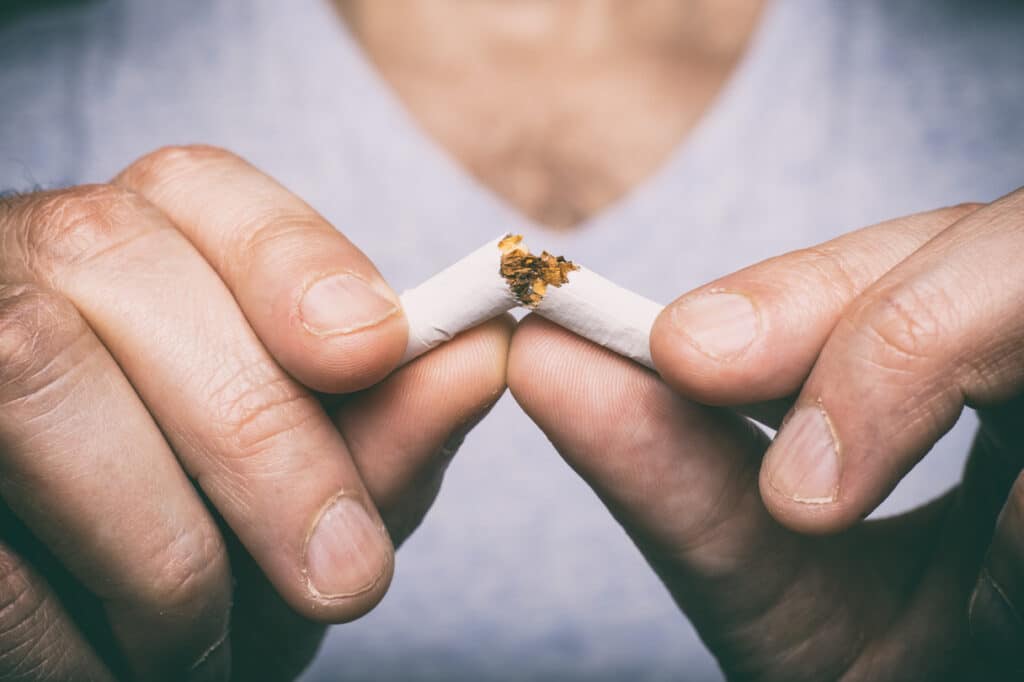
While nicotine itself may not directly cause hair loss, its consumption through smoking or vaping can contribute to various factors that negatively impact hair health. Reduced blood flow to hair follicles, oxidative stress, hormonal imbalances, increased cortisol levels, and impaired nutrient absorption are all effects of nicotine use that can lead to hair problems.
Hair loss is a complex condition that can be caused by a variety of factors, both external and internal. Although nicotine and the link between smoking and loss of hair has not been studied as extensively as other potential causes, there are some indications that the substance may be linked to hair loss.
No matter the degree of hair loss, evidence shows that keeping your hair healthy may be easier if you limit your nicotine consumption. Whether it’s regular it’s traditional cigarettes or any other form of tobacco product, kicking the habit may prevent you from damaging hair and improving the effectiveness of any hair loss treatments you wish to undergo.
Embrace a Healthier Lifestyle for Healthier Hair
If you are concerned about hair loss and are a nicotine user, consider seeking support to quit smoking or using nicotine-containing products. Embracing a healthier lifestyle, including a balanced diet, stress management, and avoiding harmful habits, can significantly contribute to maintaining hair health and overall well-being.
It is essential to consult with our hair restoration experts if you are experiencing significant hair loss or hair thinning to uncover the underlying cause and explore proper treatments. Remember, making positive changes in your lifestyle and seeking professional advice can go a long way in preserving your precious locks!
Ready to see a fuller head of hair? Book a consultation at Complete Hair Restoration today!

